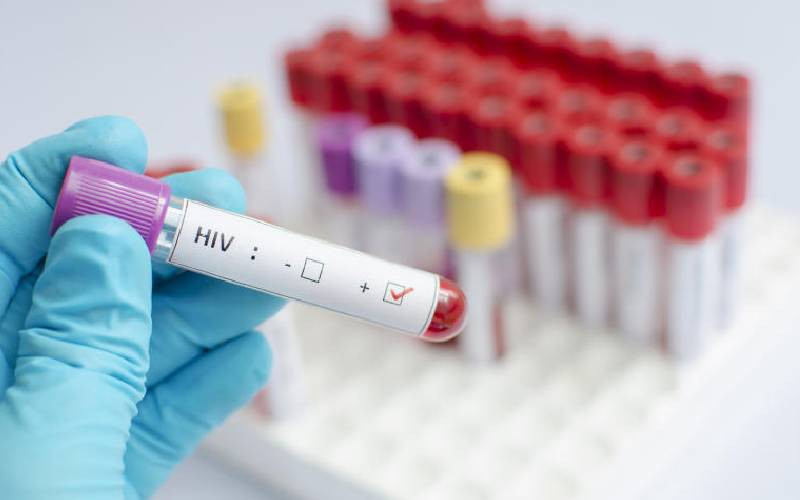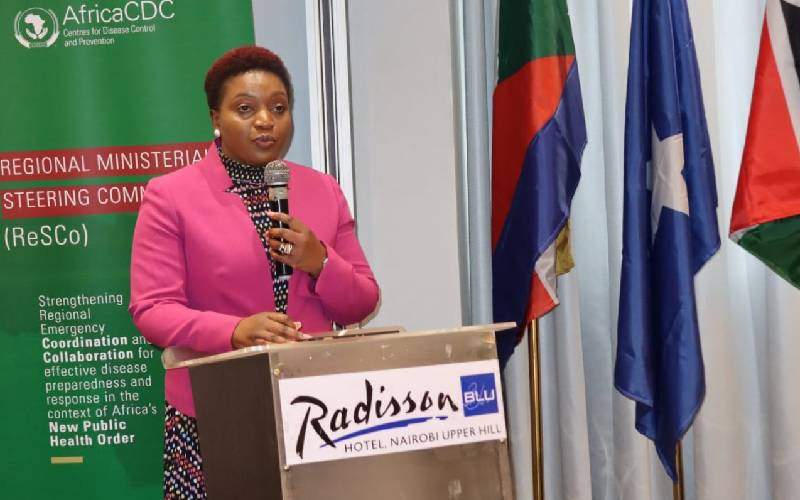
Doctors and private hospitals have dismissed the government's claim that Sh20 billion was lost through fraudulent medical insurance payments.
They claim that last week's report by Health Cabinet Secretary Susan Nakhumicha was meant to tarnish the name of the National Health Insurance Fund (NHIF) ahead of the transition to the Social Health Authority (SHA).
Rural Private Hospitals Association of Kenya (RUPHA) also says the claim was aimed at doing away with money owed to hospitals.
The Kenya Medical Practitioners and Dentist Union (KMPDU) disagreed with the report, saying all hospitals across the country should have been investigated.
KMPDU Secretary General Davji Atellah said the purported scandal is a fraudulent misrepresentation of facts. “The ministry should not work with extrapolation of data, they should dig deeper to identify all rogue facilities and take action. Not theatrics,” said Dr Atellah.
Although Nakhumicha said Sh20 billion had been lost, the CS only listed 27 hospitals she said had caused a loss of Sh171 million.
“What we are witnessing is sensational uproar on NHIF to promote ‘angel’ SHIF,” said the Secretary-General.
- Activate our NHIF cards, retired prison wardens plead
- Senator Okenyuri seeks statement on measures to recover funds lost through NHIF scam
- NHIF cover still the most popular health insurance despite failings
- New offices and appointments illegal, PSC tells Nakhumicha
Keep Reading
Of the 27 hospitals out of 67, the ministry listed 25 where at least Sh171 million has been lost. Only Sh17,704,839 has been recovered.
KMPDU went to court to stop the implementation of the Social Health Insurance Act, 2023, which is meant to oversee the operationalisation of SHA to replace NHIF.
RUPHA Chairperson Brian Lishenga also dismissed the investigation, saying the ministry did not provide a full list of the stated 67 facilities.
Dr Lishenga said at least eight of the hospitals listed had been implicated in fraud mid-last year, whereas others had been suspended by former NHIF Chief Executive Officer Peter Kamunyo.
A number of suspended facilities were reinstated by the NHIF board as due process had not been followed and that fact that the CEO did not have a mandate to suspend the hospitals.
“It is shocking that a number of facilities have come back, yet a number have letters reinstating them. Suspending them is strange,” said Lishenga.

The hospitals were accused of minting money through fraudulent claims with the support of some NHIF employees.
Lishenga also faulted the Sh20 billion figure, noting that in a facility census commissioned by the Health CS in December last year, the country has 5,574 NHIF accredited hospitals.
But according the CS report, Kenya has 8,884 NHIF-accredited facilities.
According to Lishenga, inconsistency in the ministry’s reports is a clear intention to write off all NHIF liabilities as fraudulent debts.
“We believe the ministry is setting the stage to say claims by private hospitals are under investigation. Every time we ask for payment, we are told we are corrupt, which is not pointed out” he said.
Private hospitals are now demanding that NHIF settle all its liabilities before the transition.
Sh15 billion is unpaid money for surgical cases, medical admissions, dialysis and cancer care, Lind Mama, medical claims and Edu Afya, with a bigger junk being Lind Mama services.
Additionally, Lishenga said the government is yet to release Sh4.4 billion capitation owned to the hospitals.
Kenya Union of Clinical Officers Chairman Peterson Wachira said repealing NHIF to SHA will not stop corruption. “Corruption is more of a moral issue than it is legal. SHIF shall contract another insurance company to manage its claims.”
This presents an opportunity for corruption, unless stringent regulations and monitoring systems are put in place.
Under the new Act, claims management will be spread to newly formed bodies.
Though not yet under investigation, Lishenga questioned who will audit the liabilities when the majority of NHIF employees will be sent packing.
“If the idea is to begin with a clean slate, let NHIF settle all its liabilities. NHIF should settle and sign off everything at public, private and mission hospitals, otherwise, we shall have a lot of litigations,” he said.
In her address on Friday, the CS said upon commencement of the new law, all funds, assets and other properties, movable and immovable held for and on behalf of NHIF will be under the new agency.
But James Kamau, a health economist, said although the intention of the new laws is noble, there is need for a clear transition roadmap with all risk factors taken into account.
“It remains unclear on how SHA will take over all NHIF liabilities and operationalisation," he said.

Prof XN Iraki, an economist at the University of Nairobi, said fraud usually occurs due to poor controls. “Everyone is running to NHIF because it has a lot of money, and because of lack of control, we have a lot of fraud cases,” he said.
Iraki also blamed the fraud on some medical doctors. “Asymmetrical record is where a lot of money at the fund disappears by ordering unnecessary tests which are not followed through.”
Different monkeys, same forest
He said the new authority may not be the cure. “NHIF has had problems in the past. But my biggest fear is that if we are not careful, the problems that NHIF will follow the other new entity. We must focus and ensure that patients get value for their money."
According to him, those involved in the scandals should be charged in court to win the trust and spearhead a smooth UHC programme.
“Most of the people paying for NHIF struggle to get the money. Sh500 might appear little, but it is a lot of money for hustlers. Imagine you have been paying for NHIF but cannot get services."
To end graft, he said the government should adopt IT.
In her statement, the Health CS said the new authority is envisioned to reduce and eliminate fraud by automating services to minimize human interface.
Despite damning reports on malpractices coupled with leadership wrangles at NHIF, the fund remains the most popular insurance among Kenyans.
Out of 26 per cent of insurance holders, at least 24 per cent of them use NHIF, according to the 2022 Kenya National Demographic Health Surve.
 The Standard Group Plc is a multi-media organization with investments in media platforms spanning newspaper print
operations, television, radio broadcasting, digital and online services. The Standard Group is recognized as a
leading multi-media house in Kenya with a key influence in matters of national and international interest.
The Standard Group Plc is a multi-media organization with investments in media platforms spanning newspaper print
operations, television, radio broadcasting, digital and online services. The Standard Group is recognized as a
leading multi-media house in Kenya with a key influence in matters of national and international interest.











